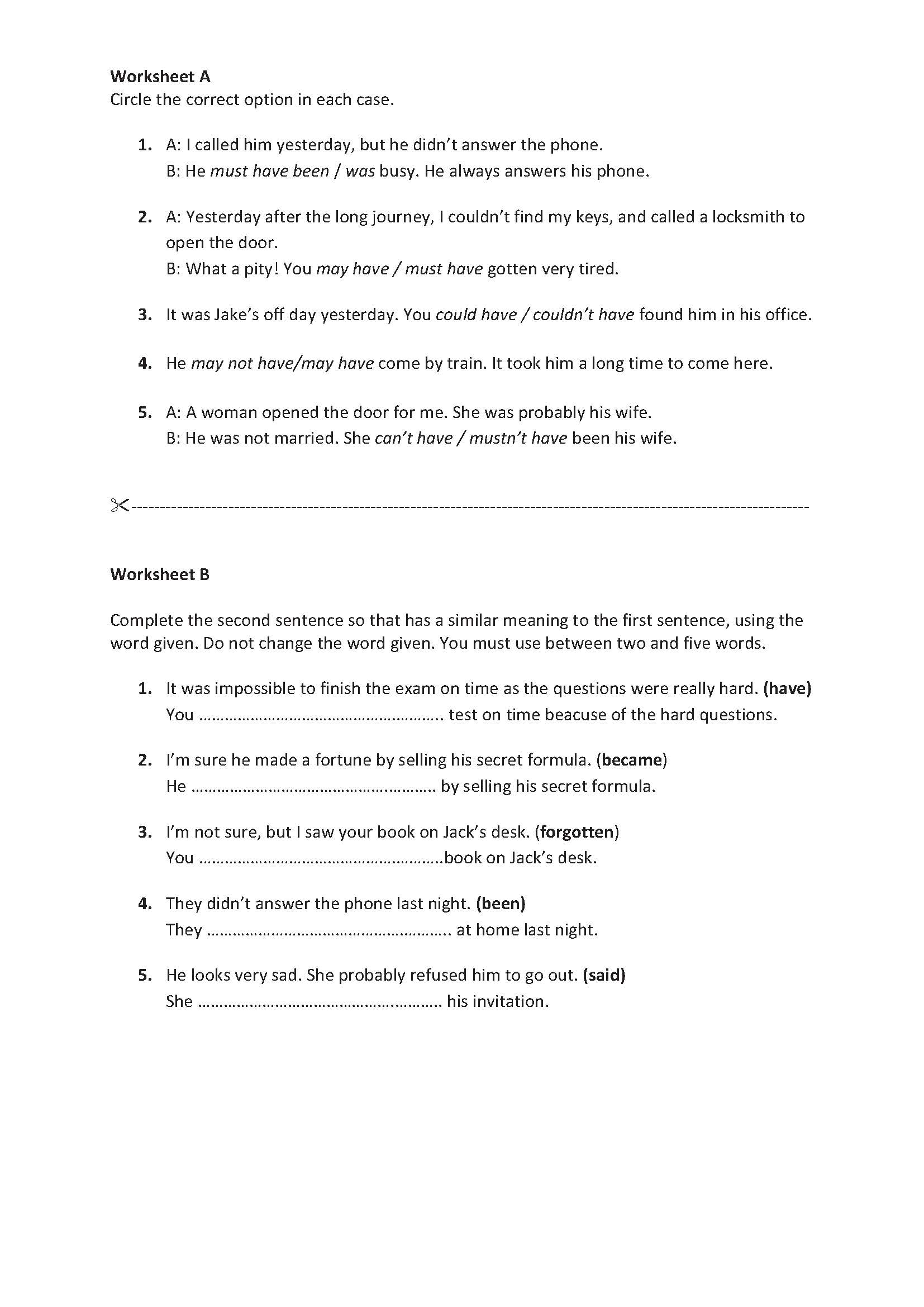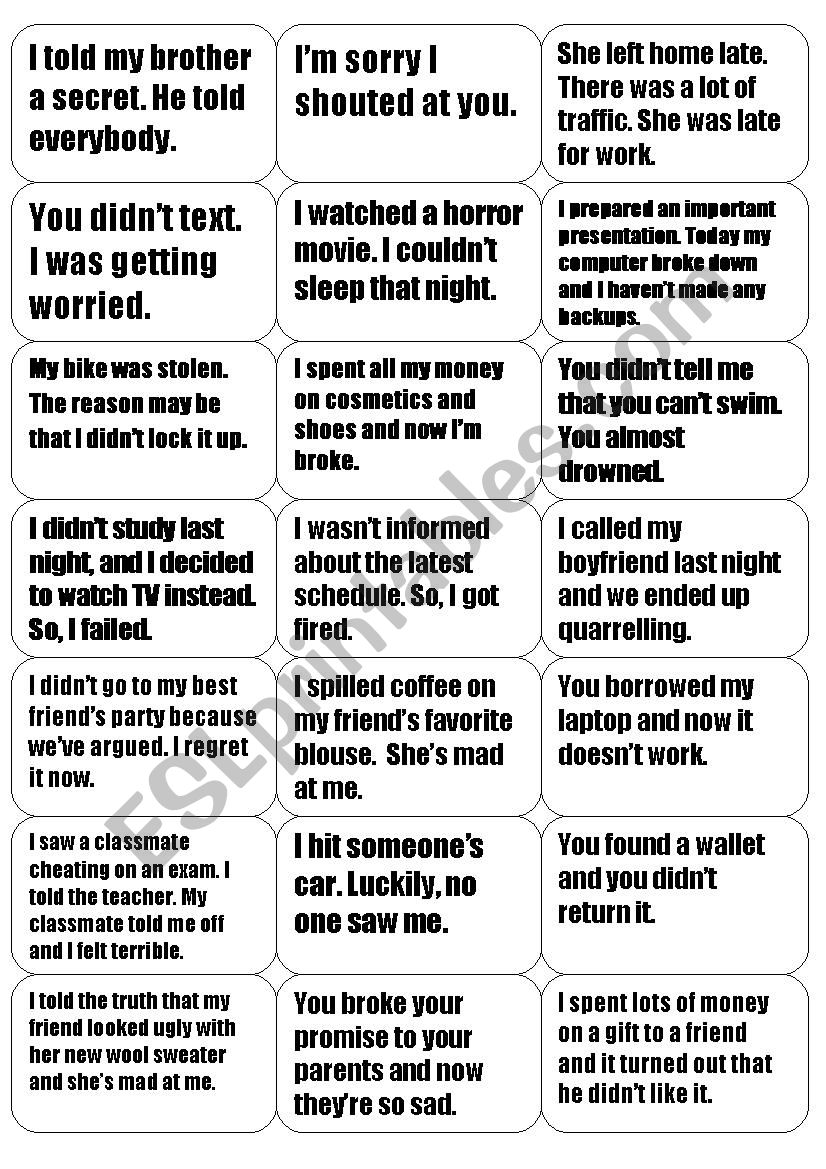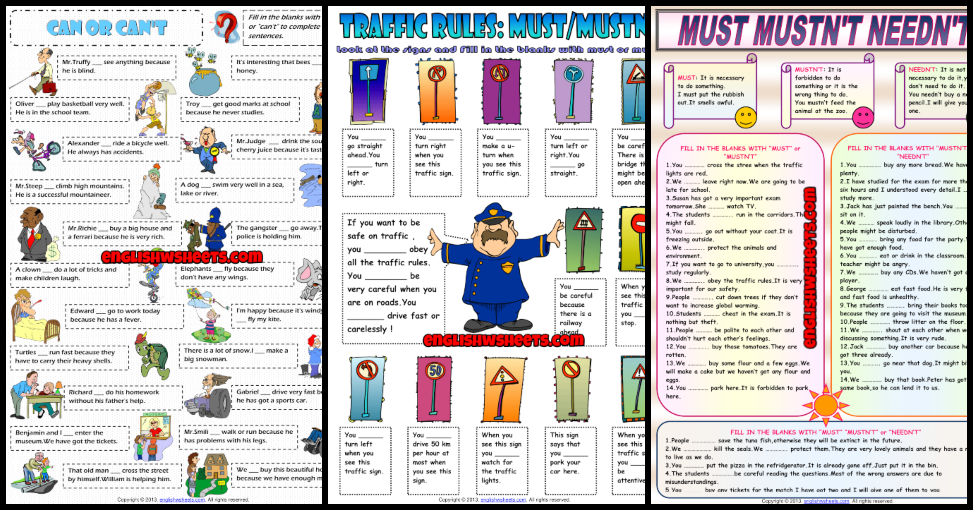


I didn’t go to bed until late last night because I had to write this exercise.ġ1. Yesterday at work, my friend felt very bad because he had gotten drunk the night before and he had a very bad hangover in the morning.ġ0. Yesterday was my mother's birthday and I didn't buy her a present because I forgot it was her birthday.ĩ. My friend borrowed $1,000 from me and never paid me back.Ĩ. My mother smoked all her life and died of lung cancer.ħ. While I was driving to school, I saw an accident in which a man drove through a red light while speeding.Ħ. My brother lost his job because he argued with his boss and told his boss that he quit.ĥ. My car broke down on the highway because the engine was low on oil.Ĥ. The man's wife gave him some of her money so that he could gamble again.ģ. The man lost all his money at the race track betting on horses.Ģ. Past Modal Exercise: Should Have + Past ParticipleĮxercise 47: Consider the following situations and then tell what the people should or shouldn't have done, please.ġ. I thought I saw Adnan this morning but it couldn't have been him – he's in Greece this week.ĭo this exercise to test your grammar again.\) We use can't have and couldn't have + past participle when we think it's not possible that something happened. Could have is also possible in this context but less common.

Police think the suspect may have left the country using a fake passport. I think I might have left the air conditioning on. We can use might have or may have + past participle when we think it's possible that something happened. The door was locked and nothing was broken. Who told the newspapers about the prime minister's plans? It must have been someone close to him. We use must have + past participle when we feel sure about what happened. This page focuses on making deductions about the past. The modal verb we choose shows how certain we are about the possibility.

We can use modal verbs for deduction – guessing if something is true using the available information. Modals – deduction (past): Grammar test 1 How did she fail that exam? She can't have studied very much. We don't know for sure that Alex broke the coffee table. Look at these examples to see how must, might, may, could, can't and couldn't are used in the past.Īn earthquake? That must have been terrifying!


 0 kommentar(er)
0 kommentar(er)
